As the worlds of high-tech consumer electronics and professional filmmaking increasingly overlap, the idea of Apple acquiring Blackmagic Design is a fascinating proposition. Apple has made strides toward bringing professional-grade technology to the mainstream with innovations like the iPhone’s advanced camera systems and ambitious projects like the Vision Pro and 8K 3D Cinema Camera. On the other hand, Blackmagic Design has consistently pushed the boundaries in professional cinematography, democratizing high-quality tools through cinema cameras like the URSA line and the industry-standard editing and grading suite, DaVinci Resolve. This article explores the strategic possibilities, advantages, and potential drawbacks of Apple acquiring Blackmagic, with a focus on how such a merger might reshape the cinematic landscape.
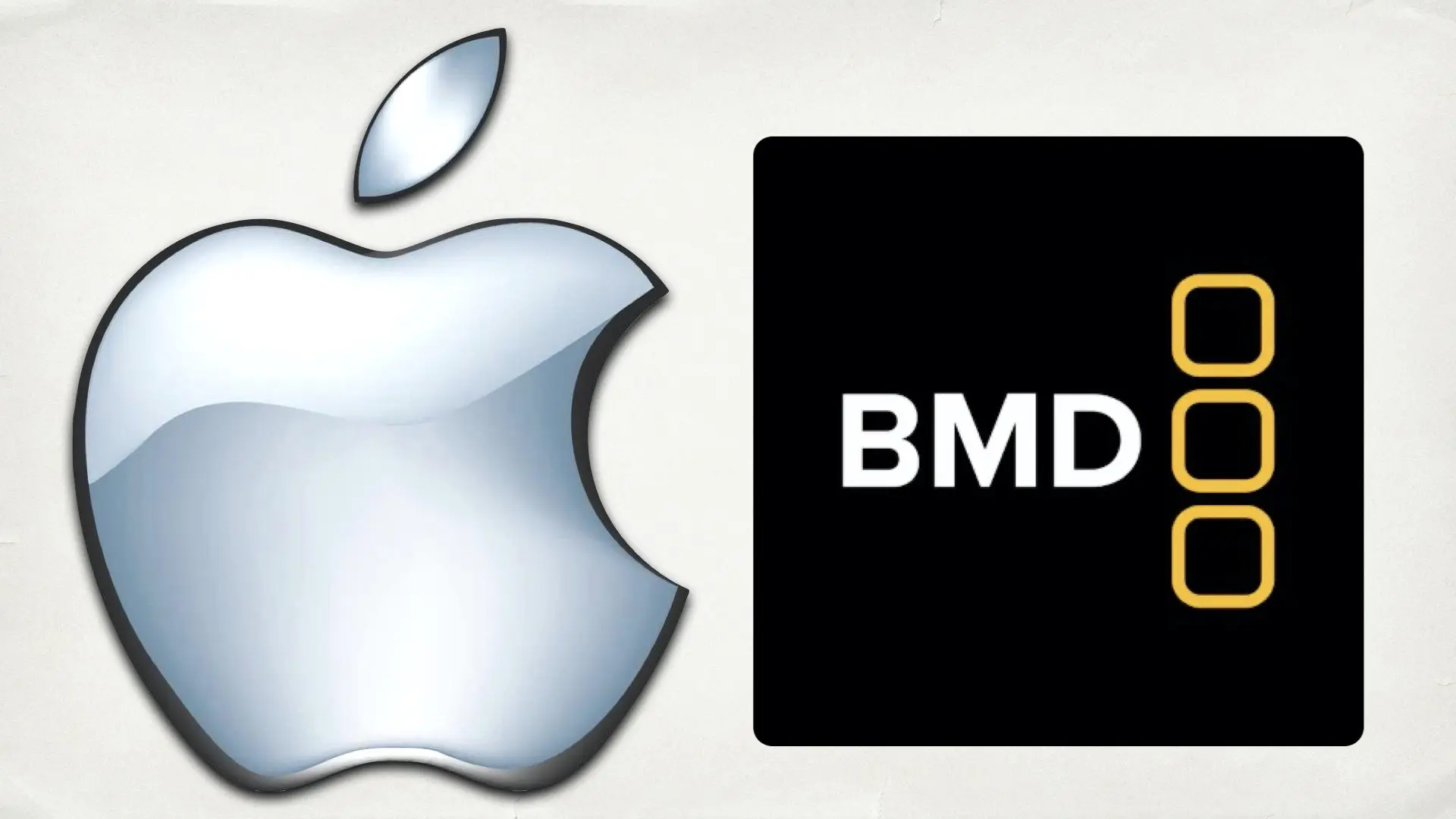
Apple’s Pro Video Aspirations: What We Know So Far
Apple’s recent releases and innovations reveal a clear interest in the pro cinematography space. From cinematic video features on the iPhone 15 Pro Max to the ambitious Vision Pro, Apple is redefining what consumer devices can achieve in terms of image quality and creative functionality. One of Apple’s key steps was the release of the iPhone 15 Pro Max, which boasts video capabilities rivaling that of professional-grade cameras, as we discussed in “Apple: The iPhone 15 Pro Max Can Rival a Large $20,000 Camera”. With computational photography advancements, Apple has been able to provide DSLR-like quality in devices that fit into the palm of your hand, narrowing the gap between consumer and professional imaging. Similarly, Apple’s first step into dedicated cinema technology, an 8K 3D camera, reflects its ongoing interest in advanced filmmaking tools. Our article, “Apple Introduces Its New 8K 3D Cinema Camera”, highlights how Apple is pushing 8K resolution and 3D imaging, signaling a move toward high-end, immersive experiences. With devices like the Vision Pro, Apple has showcased interest in the moviemaking space. The Vision Pro’s potential as a filmmaking tool was explored in “Bloomberg: Apple Vision Pro’s Greatest Potential May Be Replacing the Mac and iPad” and “Can the Apple Vision Pro Be Utilized in Moviemaking?”, where we discuss how it could serve as a unique tool for directors and content creators. However, its professional functionality has not yet fully materialized, as discussed in “Why Apple Has Failed With the Vision Pro”.
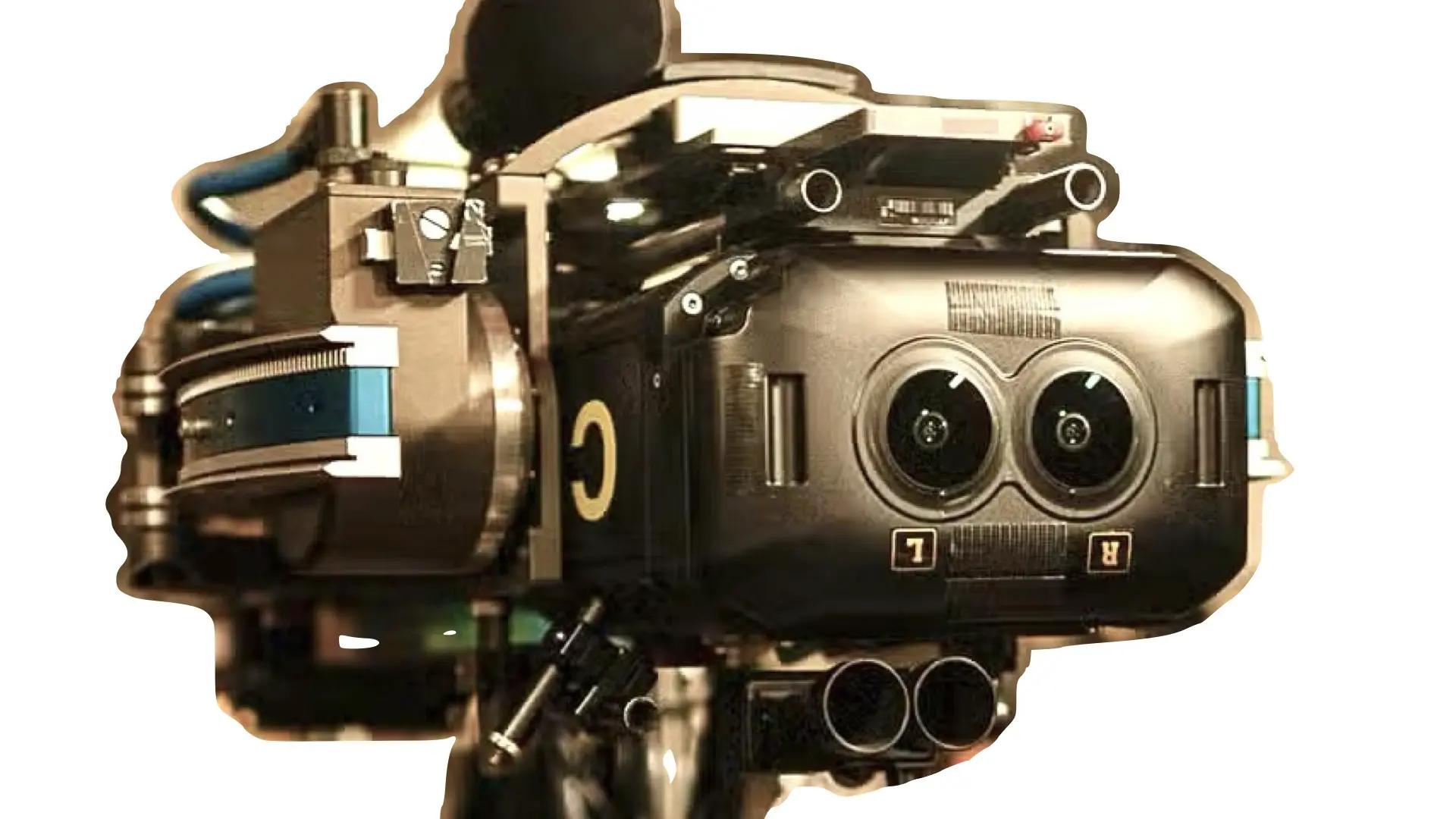
Blackmagic Design: A Leader in Democratized High-End Cinema Tools
Blackmagic Design has a reputation for revolutionizing the cinema industry, making professional-quality cameras and software accessible to independent filmmakers and smaller production houses. With a wide-ranging lineup of cameras, such as the URSA Cine 12K and URSA Cine 17K, Blackmagic has delivered affordable, ultra-high-resolution imaging solutions. Our articles “URSA Cine 12K Might Become the Main Competitor for ARRI Alexa and Sony Venice” and “URSA Cine 17K: Bringing IMAX Filmmaking to the Masses” showcase Blackmagic’s efforts to democratize ultra-high-resolution cameras for a broad market. Perhaps just as significant as its cameras is Blackmagic’s DaVinci Resolve software, a powerful tool for editing and color grading that rivals Adobe Premiere and Final Cut Pro. DaVinci Resolve 19, recently discussed in “DaVinci Resolve 19 Is Now Available”, has become a cornerstone in the post-production industry and could complement Apple’s suite of creative software.
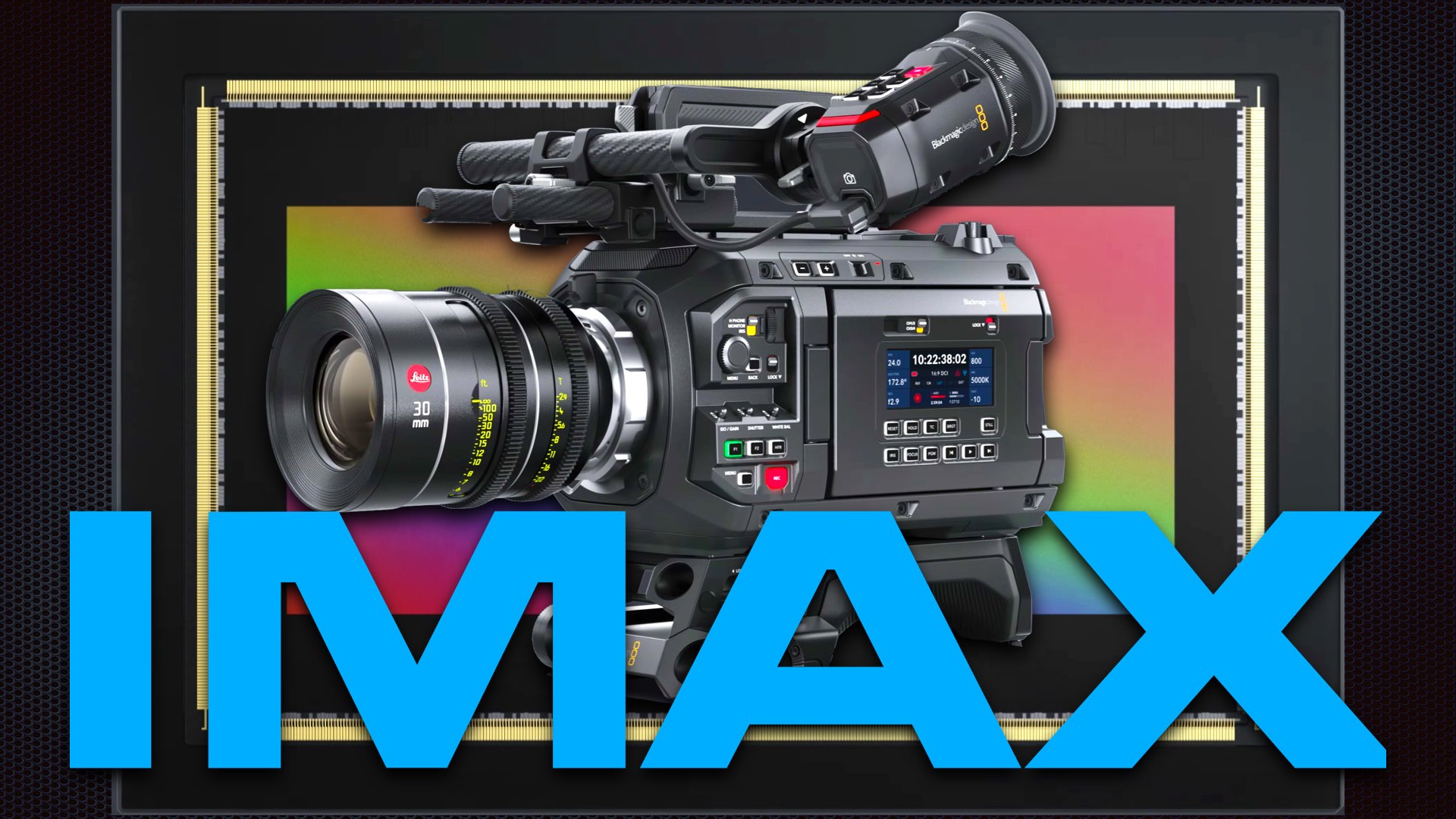
Strategic Synergies: Why Apple Might Consider Acquiring Blackmagic
Creating a Unified Filmmaking Ecosystem
Apple’s software ecosystem is designed for seamless integration, a philosophy that Blackmagic shares in its own right. An acquisition would allow Apple to unify its pro software and Blackmagic’s tools, creating an ecosystem that spans the entire production pipeline—from shooting with a potential new Apple-Blackmagic camera to post-production with DaVinci Resolve. For example, an Apple-designed camera that integrates with DaVinci Resolve could transform workflows, offering creators an end-to-end solution for shooting, editing, and grading. Additionally, if Apple integrated its own software tools with DaVinci Resolve, the possibilities for AI-driven editing and color grading, such as computational enhancements for footage, could revolutionize both platforms.
Tapping Into Blackmagic’s Cutting-Edge Imaging Technology
With Apple’s increasing focus on image quality in consumer devices, Blackmagic’s high-resolution imaging capabilities could be invaluable. The URSA Cine 12K camera, reviewed in-depth in “Blackmagic Publishes Readout Speed of URSA Cine 12K LF and Pyxis 6K Cameras”, showcases Blackmagic’s prowess in delivering professional-grade resolution at accessible prices. Integrating Blackmagic’s sensor technology and expertise in high-resolution capture could allow Apple to produce professional cameras that far exceed current iPhone capabilities.
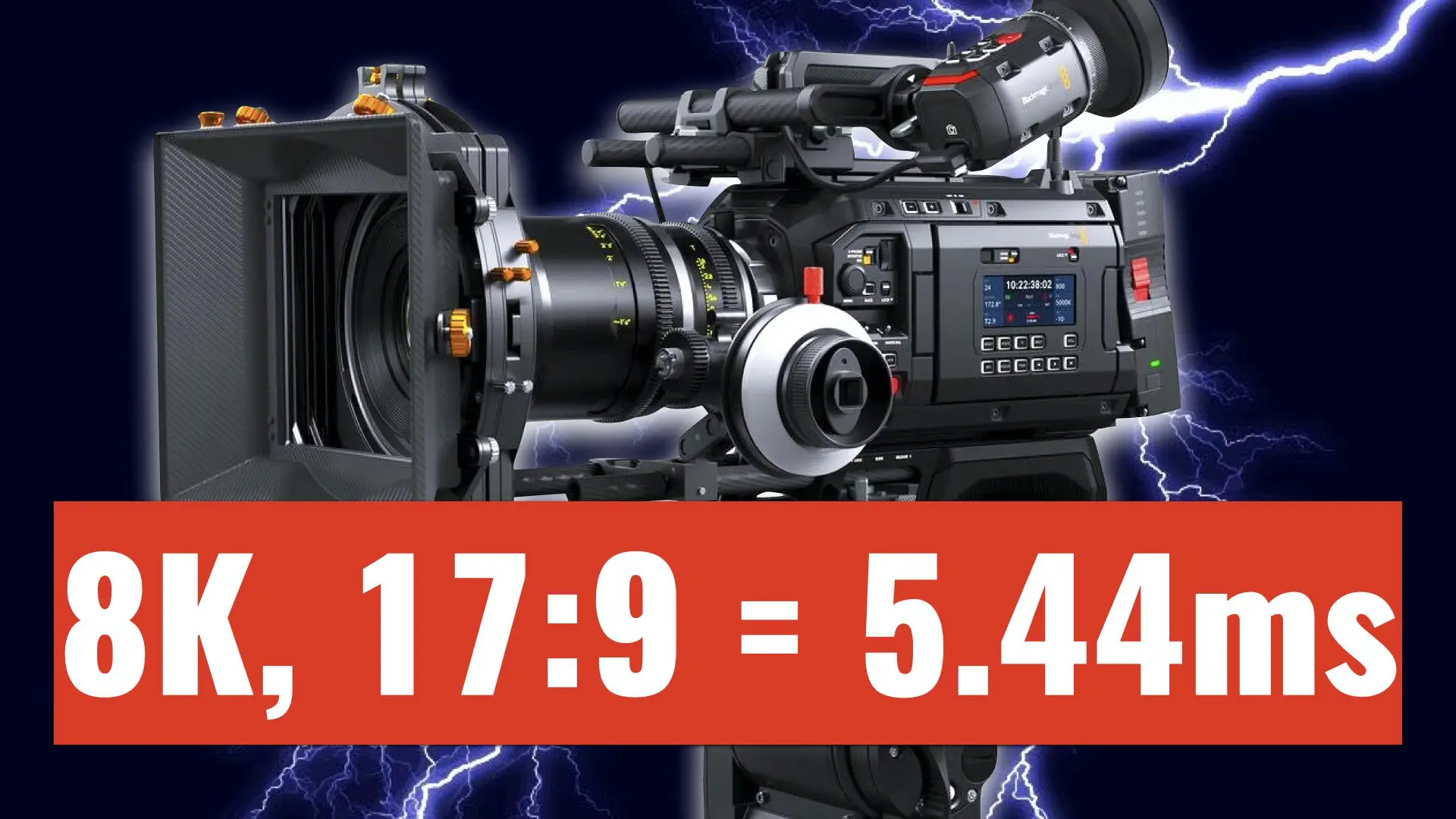
Expanding Apple’s Reach in Post-Production
DaVinci Resolve would be a valuable addition to Apple’s software lineup. With its professional-grade capabilities and popularity among colorists, Resolve could elevate Apple’s status in the pro editing world. By enhancing Final Cut Pro and potentially offering Resolve as part of Apple’s creative suite, Apple could gain a dominant foothold in post-production.
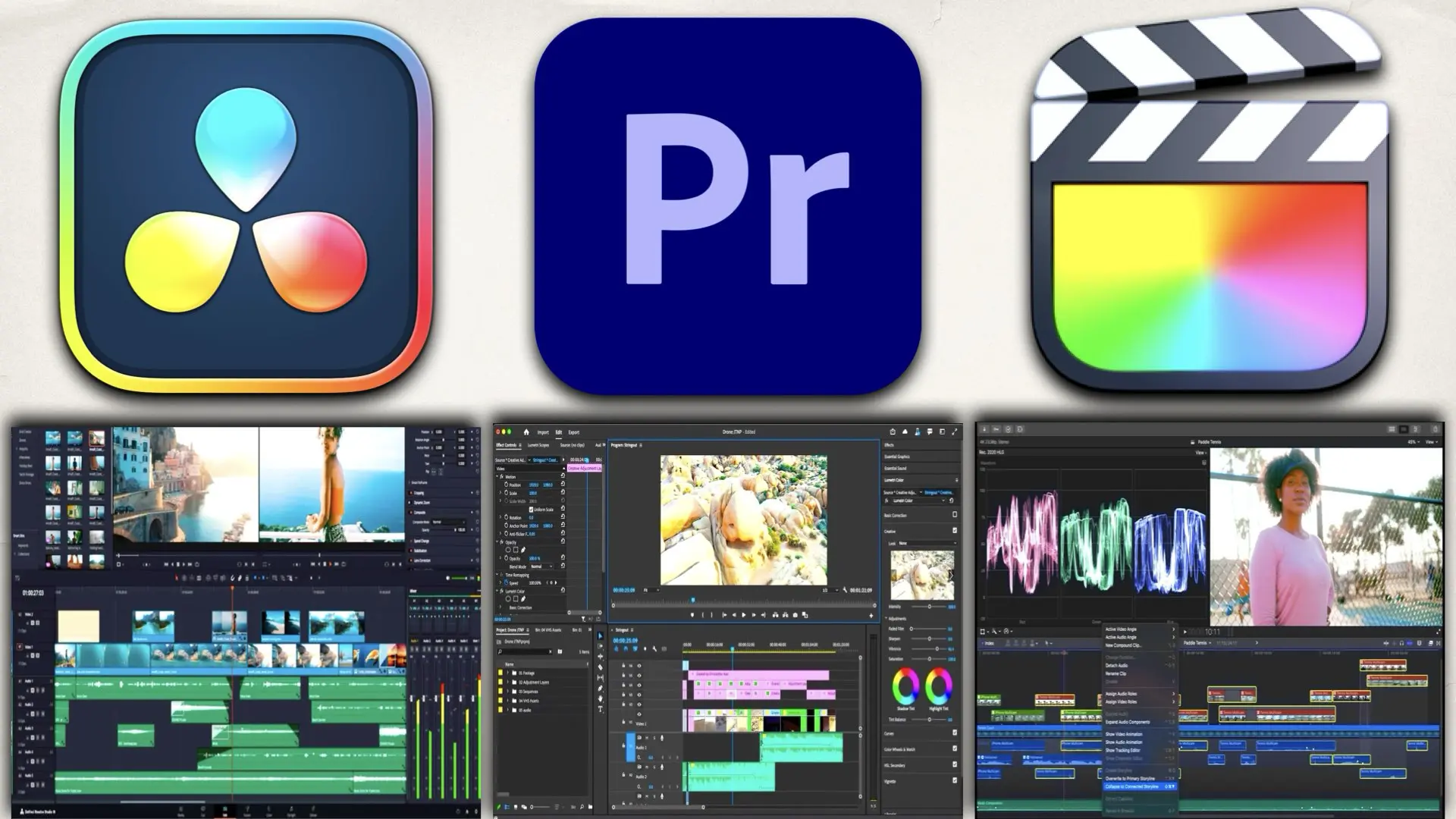
Empowering Independent Filmmakers and Creators
Blackmagic has a history of empowering independent filmmakers through accessible pricing, a vision that aligns with Apple’s mission to democratize technology. With Blackmagic, Apple could further expand this ethos, reaching more creators by offering pro-grade tools at prices competitive with traditional cinema brands. Imagine Apple bringing IMAX-quality tools to creators, as envisioned in “Big Sky Camera & Apple Vision Pro: The Perfect Match?”.
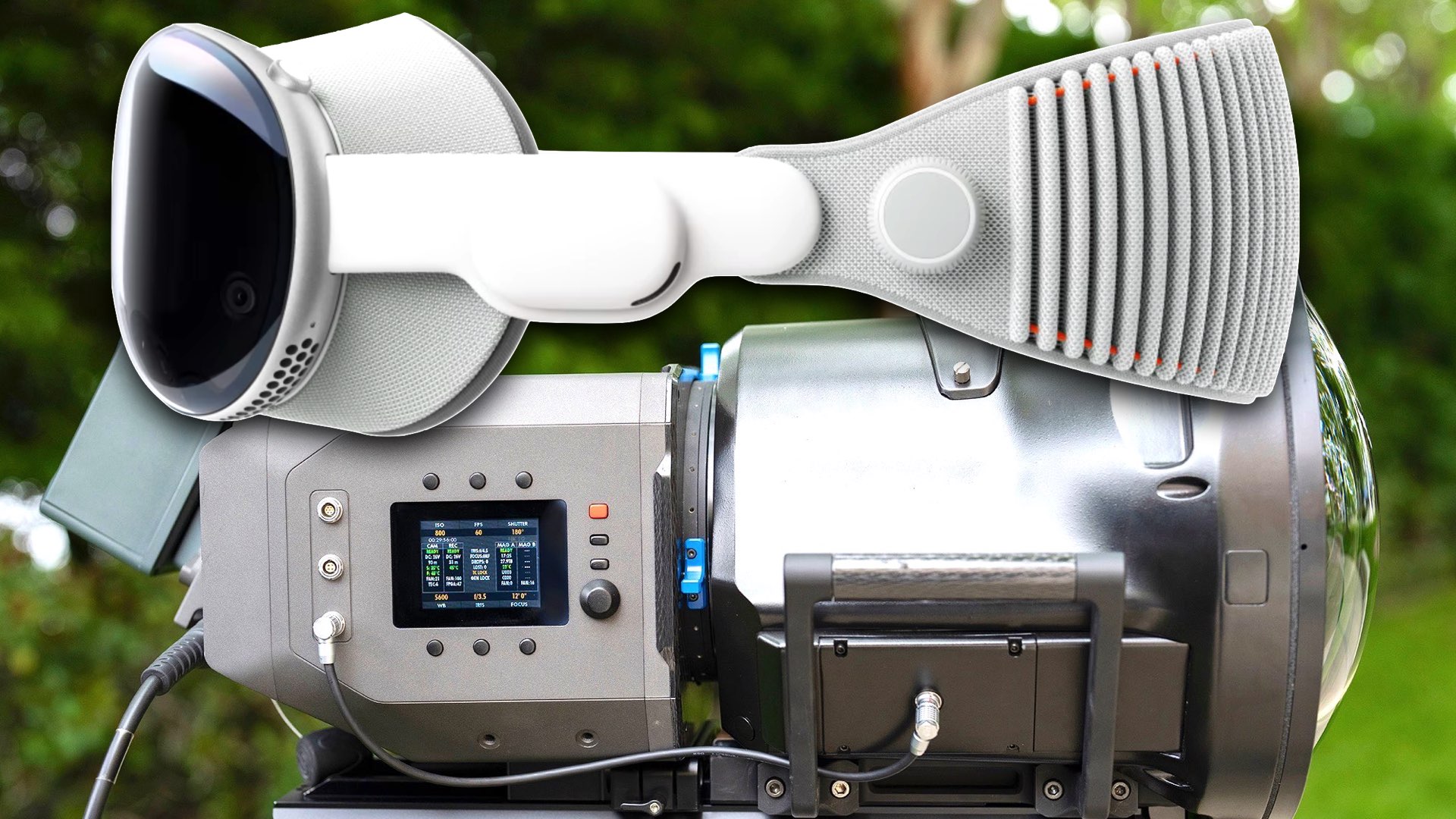
Apple’s ecosystem is known for its closed nature, whereas Blackmagic provides flexibility in customization and setup. Balancing Apple’s brand control with Blackmagic’s openness could pose cultural and operational challenges. The need for creative freedom, which Blackmagic emphasizes, is crucial for its current user base, especially in the pro film industry.
Challenges of an Apple-Blackmagic Merger
Maintaining Affordability for Users
One major risk is that an acquisition could lead to price increases for Blackmagic’s products, potentially alienating its loyal customer base. Blackmagic’s cameras are known for their affordability relative to competitors, which could change under Apple’s premium pricing model. Our piece “Blackmagic Design: 1,500 Employees, $576 Million Revenue, and One Ambitious Founder” highlights how affordability is a core part of Blackmagic’s strategy.
Preserving Blackmagic’s Identity
Apple’s ecosystem is known for its closed nature, whereas Blackmagic provides flexibility in customization and setup. Balancing Apple’s brand control with Blackmagic’s openness could pose cultural and operational challenges. The need for creative freedom, which Blackmagic emphasizes, is crucial for its current user base, especially in the pro film industry.
Competitive and Regulatory Implications
An acquisition of Blackmagic would likely face regulatory scrutiny due to Apple’s existing dominance in various markets. By moving into cinema hardware, Apple could be perceived as consolidating too much influence in both tech and filmmaking. Competitors like Canon, Sony, and RED may also view such a move as a threat to their standing in the cinema industry, as discussed in our analysis “Will Apple Implement a Large Sensor in Its Next iPhone?”.
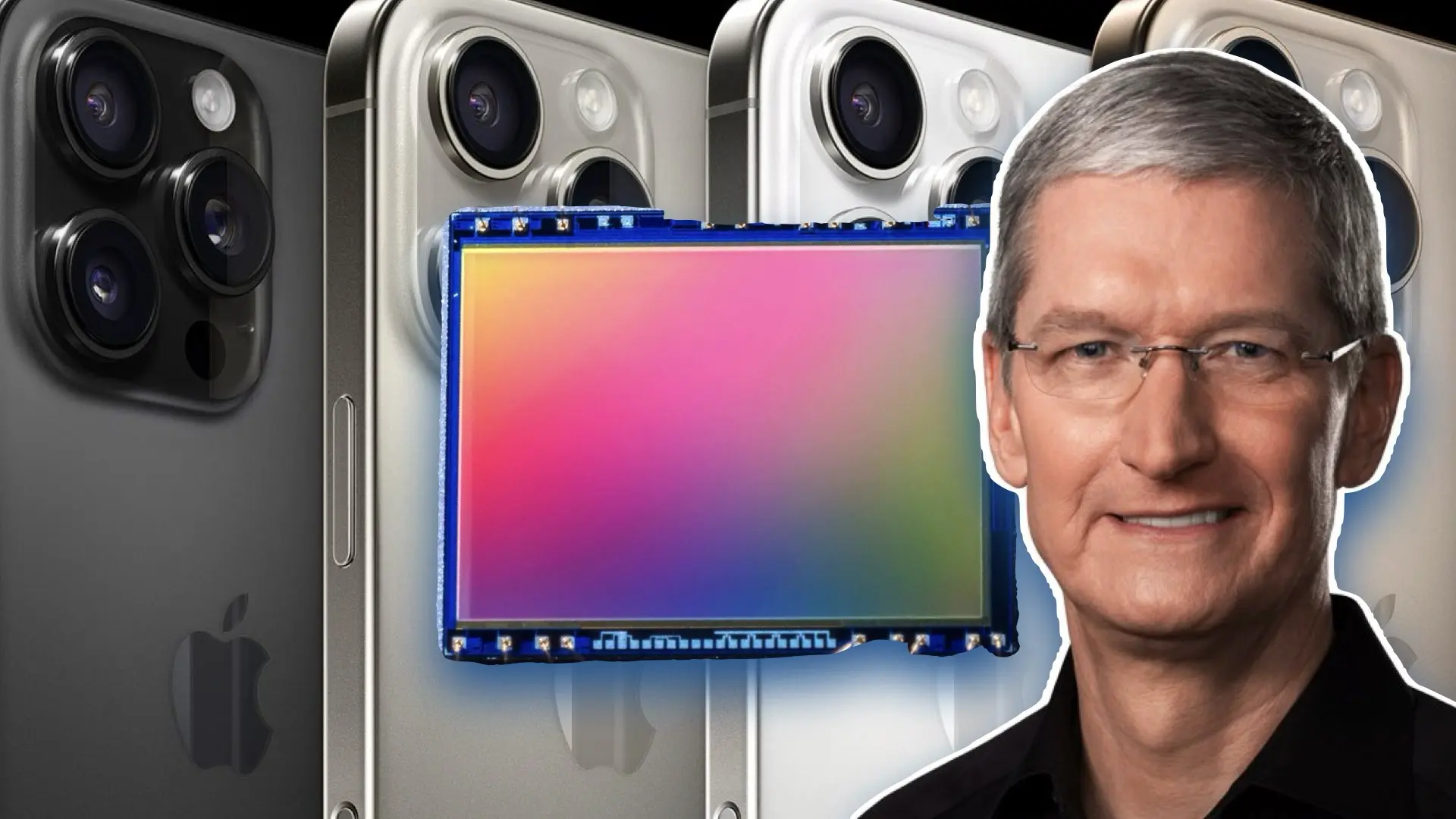
What Could an Apple-Blackmagic Merger Bring?
A potential Apple-Blackmagic merger could lead to a new era in cinematography. By leveraging Apple’s expertise in AI and computational photography alongside Blackmagic’s sensor technology, the two companies could jointly develop advanced, AI-enhanced cameras capable of real-time enhancements and even AI-driven color grading and effects, potentially fulfilling what we’ve speculated in “The URSA Cine 12K: Competing with ARRI Alexa and Sony Venice”.
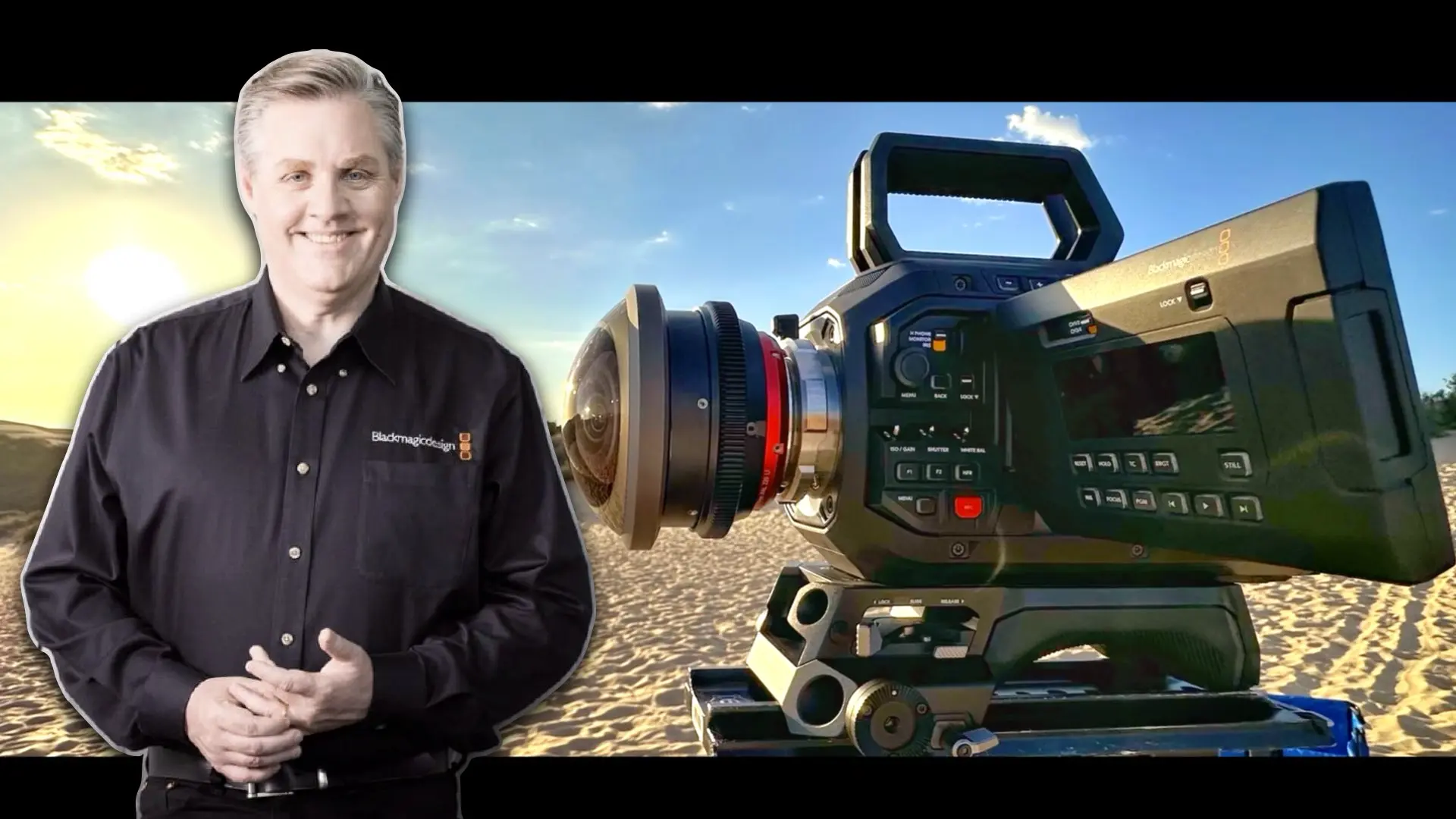
Should Apple Buy Blackmagic?
An acquisition of Blackmagic by Apple has the potential to reshape the landscape of cinematic technology. It would bring Apple closer to the heart of the film industry while enabling Blackmagic to access Apple’s resources to push the boundaries of cinema tech even further. However, the merger would need to be managed carefully to maintain Blackmagic’s commitment to affordability and user freedom. Whether Apple ultimately decides to make this acquisition remains uncertain, but the strategic value it could bring to both companies—and the cinematic industry—would be monumental. So what do you think? Should Apple buy Blackmagic?

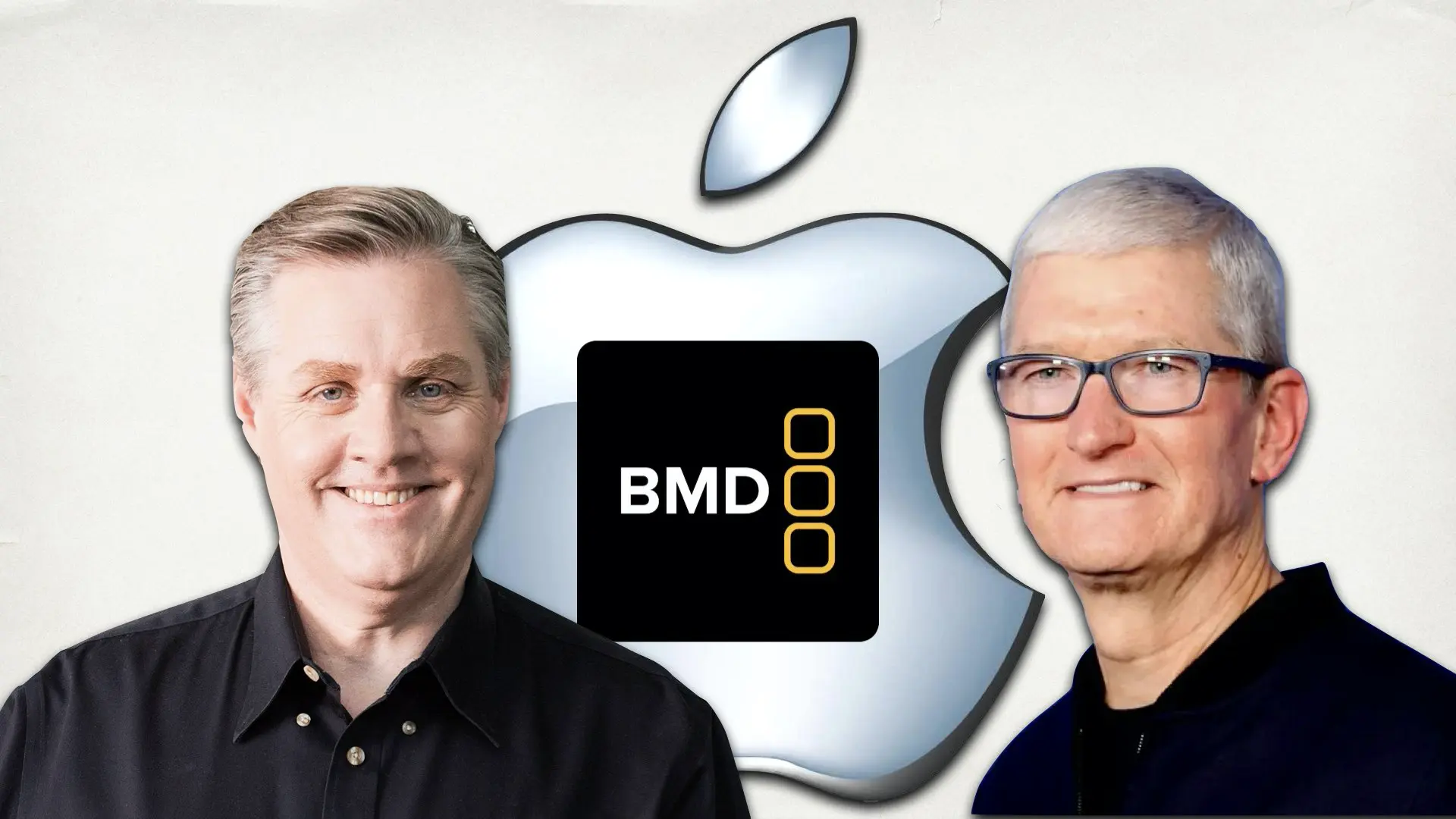
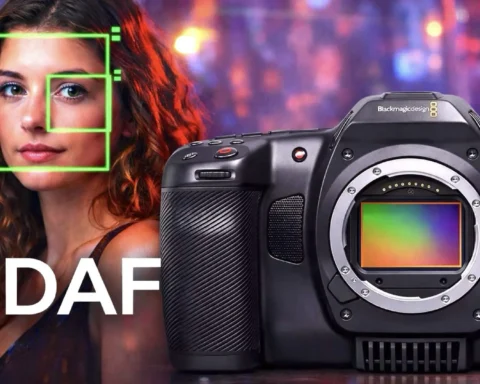

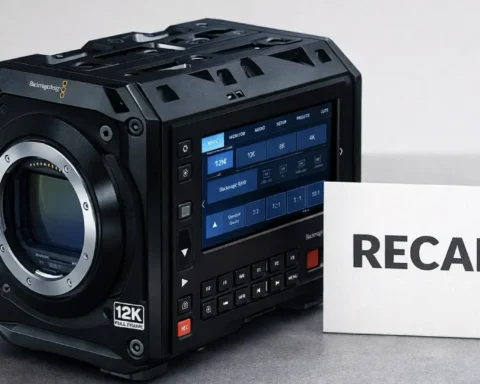
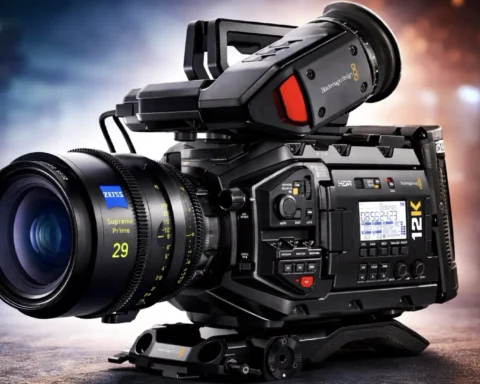
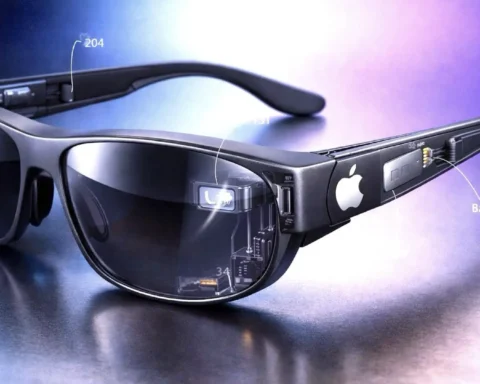
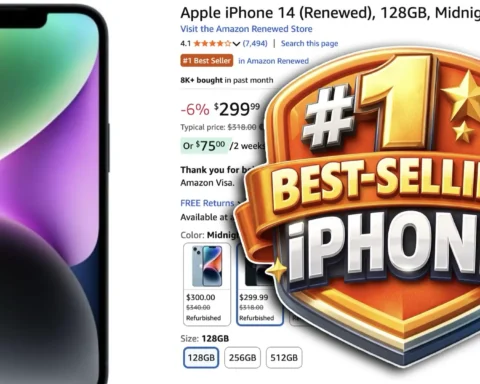

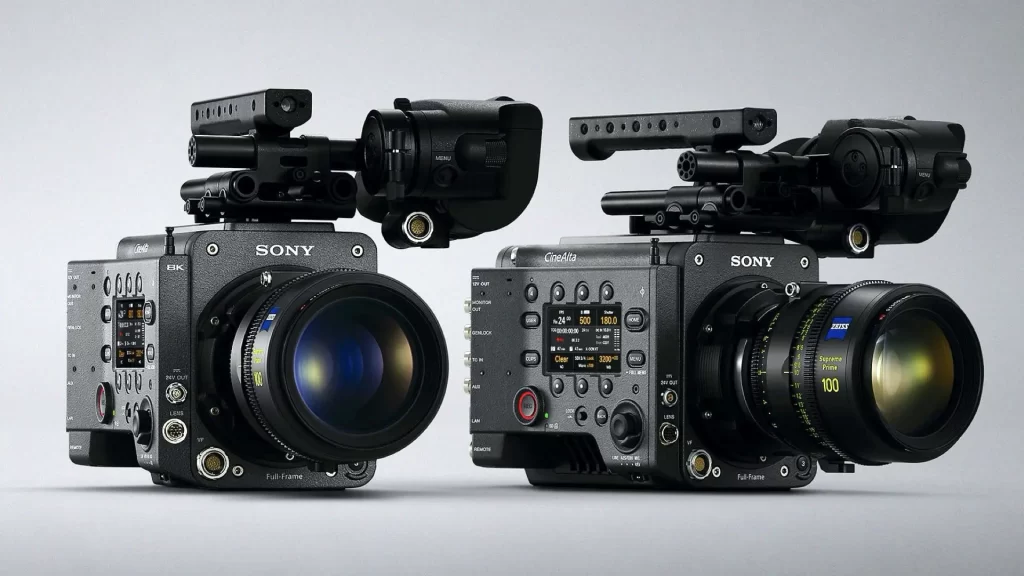
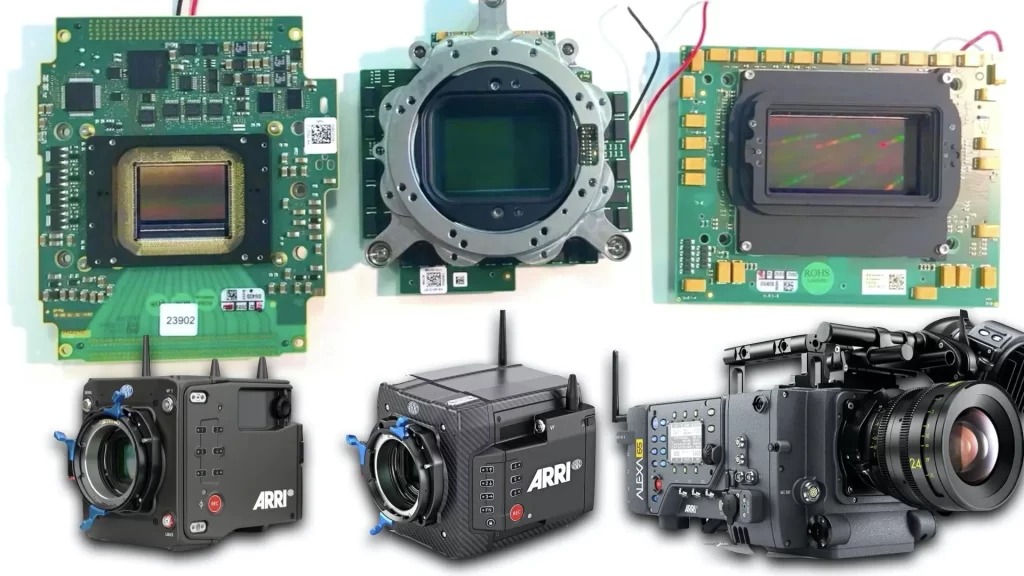
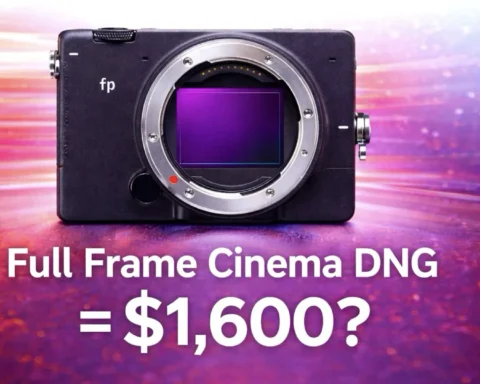
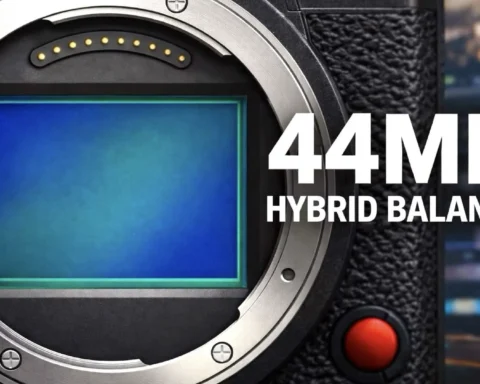
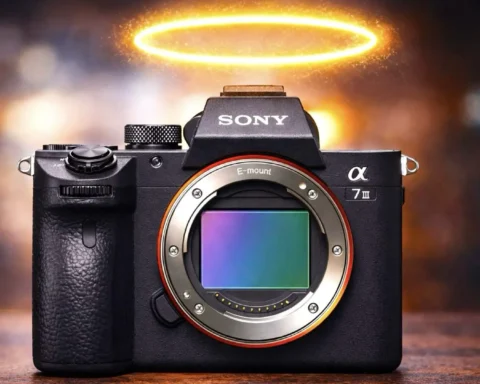

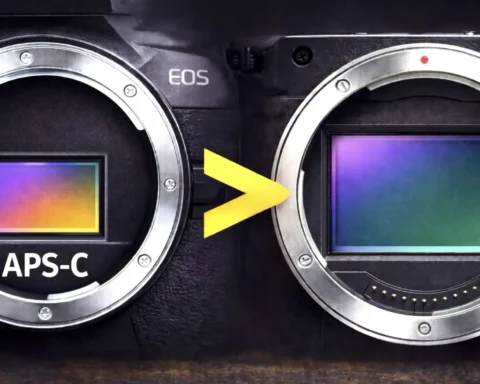


„is a fascinating proposition“ – by whom ?
It sounds like a match made in heaven – for a kid.
Apple has no interest in a mixed sales bag like BMD with audio and video-combiners, windows-support, and a gazillion of different hardware appliances over all. Why should they ?
As long it would be for the software, maybe, then again, Apple has shown limited interest and more importantly limited success in maintaining professional grade software, Logic being one notable exception.
The more I think about it, the more absurd this „proposition“ gets.
It would be a stupid idea. For one thing, Apple is a company based on being proprietary, while Black Magic is built around being open.
History shows that Apple buying companies is rarely good for customers or the company — just remember Nothing Real; the reason that Shake no longer exists is that Apple both Nothing Real.
And look at Apple’s consumer electronics market compared to Black Magic’s; Apple is a premium brand. Black Magic is a value brand. Black Magic cameras aren’t value products because they’re cheap crap, they’re value cameras because of economies of scale keeping their prices down — Grant Petty tries to cut prices through optimization rather than by lowering quality. While it leads to Black Magic usually being later to adopt some things like larger than Super35 sensors, the prices reflect Black Magic’s affordability goals. Even the 12K Cine if were priced according to its competition would be close to $45K, not $15K.
No, Apple buying Black Magic is a terrible idea, because it would be terrible for anyone who has built an indie film career around the affordability of Black Magic hardware and software.
It would suck for those who never plan on buying Apple products. No thanks. If rather it be bought by Microsoft it Google, never Apple.
No no no
Terrible idea!
Say goodbye to the free version and lifetime purchase/updates.
And Apple already has Final Cut, this should be considered a step forward to monopoly
Terrible idea if you’re a Black Magic consumer. As the article states, the prices would increase which is bad for the consumer. I feel like if Apple bought Black Magic they would just try to sell derivative cameras with very little innovation.
Yes, it is a terrible idea. Everyone wants Apple to buy great companies because they aren’t paying attention to Apple’s history.
Black Magic is a great company because it’s open rather than proprietary, which is the exact opposite of Apple.
A lot of compositors still lament the loss of Shake to this day, and it’s one of the reasons that not one single high end VFX studio has a single mac in it any more.
Apple buying a company like Black Magic would demolish the indie film community, because Black Magic is the most indie friendly camera and software company out there. Black Magic has done what both Red and Kinefinity tried to, but neither pulled it off. (Why is another discussion entirely.)
Black Magic isn’t perfect, but no company is. That doesn’t mean that Black Magic is not great for independent film, and gaining ground in the high end.
If Apple buys it, Resolve would cease to exist and the cameras would fall off the map.
Hmn. Reading through all the comments again, I feel I have to reply now. I do not know in how many post-houses you do work or have worked, I did my fair share, including buying and installing software of all sizes (“minuscule” to full throttle with Flame + Inferno).
Through all the years, one thing that stayed was the Mac. Either all the time or reoccurring in some form, at certain places. But what never happened that it went fully away. And as ‘tragic’ as it may be that Shake went doodoo, along came Nuke and became not a, but probably the industry standard for shotbased comp. I recommend windows workstations for it for various reasons, but know freelancers using it on Mac. Just like Resolve. Touting “not one single high end VFX studio has a single Mac” is just BS.
But I am with you, the cameras would fall off the map entirely, contrary to the writers assumption that “Apples 8k camera” would mean they’re going in to the camera business of sorts.
I know quite a few people in high end VFX studios, and they’re pretty much all on Windows and Linux nowadays. They may have some legacy macs floating around, but they aren’t using them.
The exception is that as they’re going more and more remote, some VFX artists are using macs to connect to their remote desktops, but that’s home use, and the mac is in that case just a modernized XTerm.
A few fold me that here are some Flame users floating around here, but I have yet to find anyone using Flame.
Nah, not legacy Macs only, Mac studios and iMacs. But anyway, if you know nobody that uses Flame, you might not know enough people (yet) or I am too old and both might be true.
That said, it is not the shit anymore, but enough use cases to justify it, e.g. in high end advertising. It also doesn’t mean ‘everybody’, but there are some customers in the pro field long enough to know the advantages and accept the price tag (which is close to what Nuke costs).
But anyway, the Mac was never the mass product for high-end post, but it also was never a “no Mac in no high-end post”.
Shake btw. was a terminal-based Irix and linux software originally and licenses were at 10.000USD before Apple acquired it (and lowered the price to I think 2000USD a pop). So much for Apple ruining the prices…-)
Anyways, I think all agree that Apple doesn’t want to buy BMD, is not interested in producing cameras and has a substantial and tragic track record of shutting down pro software products.-(
All in all, a fanboys dream at best.
As a Black magic design user and Davinci Resolve user I want apple to stay as far from bmd as possible.
I don’t want them to become closed and proprietary.
Fully agree.
Apple would ruin BMD if they bought it.
I also own Macs and PCs.
No no no.. BMD is right at the start of their innovation curve. Apple is cratering when it comes to innovation.
BMD as an Apple company would put some very heavy chains on it.
And probably turn Resolve into another FCPX clown. I mean, clone.
No matter how you slice it, it’s a terrible idea.
No they screw up everything they touch. Fcpx, shake etc…
BlackMagic has carved out a space where quality meets affordability, breaking down the cost barriers that often keep creative tools out of reach for aspiring filmmakers. Their products are designed with creators in mind, without the high cost that often accompanies premium tech.
If a company like Apple were to acquire BlackMagic, there’s definitely a concern that prices could soar, potentially undoing all the accessibility that BlackMagic has brought to the industry. The market desperately needs brands like BlackMagic to stay independent, innovating without getting boxed into the premium-only segment. Their impact has been massive for creators, students, and small studios, and keeping them accessible is key to the industry’s future creativity. Here’s to hoping BlackMagic stays the course—affordable and for the people!
I feel that an acquisition from anyone, not only by Apple, would be the worest thing to happen to Blackmagic. Though Apple could be one of the worse options. Blackmagic real asset is their focus on a specific customer and prioritising them, Apple is very scattershot & focused on breadth of customer experience. In that regard I strongly hope no acquisition in any future.
Hell.
No.
Hola, unir tecnologías es bueno , pero en efecto estas dos marcas deberían de mantenerse intactas en sus espacios , lo que si creo es , que unifiquen esfuerzos , pero que solo sea para posicionarse con un nuevo producto , sin que se toquen en la escencia , y así crear un mercado especializado .
I suspect Graham Petty places having a vehicle that allows him to follow through on his own vision over cashing out. Doesn’t seem the type to stay on as technical advisor.
I really really hope this never happens. Apple will slowly and gradually turn resolve into subscription only. The free version will be significantly limited in order to push ppl to subscribe to the paid version. Resolve will be optimized for best performance only when using it on a Mac computer, of course as a way to push ppl to purchase Apple PC, and in years down the line it just might end up being a Mac-only software. Indie filmmaking will SIGNIFICANTLY hampered if Apple buys BMD.
This. Needs. To. Happen.
BMD has shown an absolute inability to test their software. Every new version and every dot release introduces new… and often major… bugs. Look at the current playback issues in v19. Look at the timeline deletion bug back somewhere around 18.3. These are just not acceptable bugs to have. Then look at how badly Resolve is losing to Adobe in the AI realm. And look at the years upon years of users begging for UI customization only to be ignored without exception. Let’s not even talk about their massive caching problems, ok? Fam, this software needs a full rewrite and Apple is poised to afford that and to make it faster, more powerful and much more reliable.
It’s not just the software. The cameras, while creating a great image and having the hands down best LCDs of any cameras at any price, are notoriously low quality in body and connector manufacturing. Apple has the experience to recreate the cameras into devices that will compete professionally with Reds and Arris. Of course there is the concern of Apple pricing and forced obsolescence which would end support for the product line but if they can make some tweaks but stay close to current pricing, they will own the market.
Hell No!!!
The way you speak, it seems like Apple don’t have any problem or bug or flaw in their products.
Bugs happens period.
Apple only will increase the price and close it.
All the good features will be gone.
With this we have a lot to loose and nothing to gain.
Shill for Apple much?
He’ll to the he’ll NO!! APPLE IS A GREEDY COMPANY!
Not only no, but Hell no.
“Apple has the experience to recreate the cameras into devices that will compete professionally with Reds and Arris.”
Apple has zero interest in producing cameras, let alone trying to dig in to the pro-segment of a niche market.
Do you know how big the market is for that type of cameras ?
Apple sold approx. 500.000 of their Vision Pros. That is considered tiny, probably a loss and considered a flop by many.
Pro-Cine Cameras have a fraction of that market.
HELL NO!!!!!
Absolutely no.
As the case of Camel Audio and Logic’s are basically locked in Apple’s ecosystem after the acquisition hence I doubt that BMD would keep the ecosystem with equality as been. Same as Prores RAW. They didn’t opened its bitstream so people had to use a reverse enginnered library to develop the image. ProRes RAW plugins for Premiere doesn’t count here.
Becauses they are so happied to lock users to their ecosystems.
Yeah, be prepared to pay $499 for every upgrade to Resolve software, and $2000 for a new panel you need for the new software.
Are you aware of any Apple-Software that costs 500,- on every upgrade ?
Furthermore, 500,- every other year for a professional piece of software that marks the centre of your workflow is not really much.
Adobe Suite costs just that pretty much (e.g. over 3 years), and nearly the same before it went subscription. It is actually quite a good value and would be as well for something that does color-grading, editing, sound, compositing, the whole shebang.
It is ridiculous to speculate about it, because I don’t think it will happen, but the fear seems unfounded to me (or unrelated in professional terms – today everybody seems to think in app pricing, either free or just a few bucks and free upgrades for life).
No! No! No!
This would be horrible!
It’s either an ai generated article or written by an Apple fan-boy who has no clue about what Blackmagic Design is or what their customers want. Blackmagic and Apple are polar opposites.
Fanboi, most likely. This guy raises this stupid idea regularly, but it’s probably because he likes getting yelled at for constantly repeating this stupid idea.
Wondered the same thing. I wonder if we will ever get a source for the ‘fascinating proposition’.
But I have to admit, I find it interesting how much dust this article raised. In a way I can’t deny the need to engage.
When Nikon bought Red, it guaranteed a foothold and market share with proven technology used in feature films and widely accepted in the industry. BMD on the other hand is geared towards independent film makers and is not widely used for commercial feature films. If Apple wants to enter and compete in the commercial feature films business they would be better off merging with the likes of ARRI which gives them instant access and acceptance as well as market share. A merger with BMD just doesn’t make sense, Apple has a huge amount of cash available if they are serious and they should aim much higher with a merger with a popular known and widely adopted camera and technology.
The end result would be the same: the merger would ruin the brand it acquired. Most of Apple’s acquisitions die on the vine. Very few thrive, or even continue to exist.
This is an idea that apple fanbois love to promote because they’re in denial of what kind of company Apple really is.
It’s a boutique consumer electronics company that happens to make computers.
Professional cameras are far outside its expertise.
If apple buys BM I will never touch another BM or apple product ever again. I mean like ever.
Of course no.
Is there something in the middle ?
Not a merger but maybe a closer partnership?
Resolve still can’t read prores raw so apple could cut the a break there?
NO, Please NO. it’ll be the END of BMD regardless of what Apple promises. What made BMD a unique and successful company is the way they look into their consumers affordability and make it priority where Apple doesn’t have such policy. I have moved to BMD DR for that particular reason, I’m sick of companies forcing people to a subscription-based programs and think nothing but how to suck your money. This would do NO GOOD but kill the soul of a generous company like BMD.
Hell No! Apple ruined FCP with zero appologies. They will kill BMD just for the fun of it or to burn their competing patents. This is in no-ones iterest.
For the love of everything good, NOOOO!
Please dont!
I will literally weep if this occurs.
Apple’s philosophy is to squeeze the last cent out of every customer it has. They aren’t technology leaders. They wait for other companies to invest time and money into creating new tech before they follow that path.
My biggest concern is that Apple will try to make Blackmagic an Apple-only system. This means those of us who aren’t hostages to Apple will be cut off and sitting in the cold.
That last is precisely how Apple killed Shake: it tried to force Shake users onto the mac platform, which at the time was comparatively pitiful because Apple’s flagship was the G4.